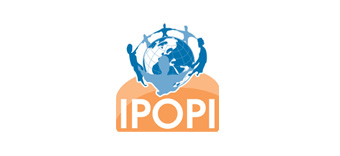October 8, 2024
IPOPI Participated in the China Blood Safety Symposium
IPOPI had the honour of being invited to the 2024 China Blood Safety Symposium in Nanchang (Jiangxi Province), which was “Focusing on new quality productivity, Ensuring blood safety, Promoting high-quality development”. This invitation gently came from Prof Liu Zhong, President of the symposium and was made possible thanks to Jessie Qu, President of PID Care China, who has been a driving force behind our participation. Nearly 2,000 participants from blood collection and supply institutions, medical institutions, disease control agencies, inspection and quarantine departments, customs, research institutes, and enterprises across China attended the conference.
The symposium was organised by the Blood Safety Professional Committee of the Chinese Prevention Medicine Association, the Institute of Blood Transfusion of the Chinese Academy of Medical Sciences, Jiangxi Blood Centre and the first affiliated Hospital of Nanchang University. The event aimed to facilitate dialogue on the latest academic achievements in blood safety while fostering consensus on high-quality development within this field.
Symposium Highlights:
During the opening Ceremony, Martine Pergent, President of IPOPI, had the honour to deliver opening remarks alongside four distinguished guests.
Then IPOPI was one of five presenters selected for a keynote address, where Martine Pergent delivered a 30-minute talk on “The crucial role of Plasma-Derived Medicinal Products in the treatment of rare disease patients worldwide”.
Rare Disease Sub-Forum
Thanks to Jessie Qu, a sub-forum on rare diseases titled “Global Blood Products Industry Development, Rare Disease Applications, and Supply Chain Security” was organised. Chaired by Martine Pergent, the session included presentations from Jessie Qu on the “Current Status and Prospects of Immunoglobulin Replacement Therapy for Patients with Primary Immunodeficiency in China”, Dr Pamela Lee (Assistant Dean of the Li Ka Shing Faculty of Medicine at the University of Hong Kong and IPOPI MAP member) on “Immunoglobulin Therapy: From Mechanisms to Therapeutic Goals”, and Prof Tomasz Kluszczyński (ACESO Healthcare Consulting.) on “Key Economic and Value Considerations for Plasma-Derived Medicinal Products in Europe”.
The symposium was also a fantastic opportunity to learn more about the PID environment including plasma-derived medicinal products in China. IPOPI had the privilege of connecting with key healthcare stakeholders in Shanghai thanks to the fruitful efforts of Jessie Qu.
Kick-off meeting of the white paper on PDMPs under the auspices of the Chinese Organisation of Rare Disease (CORD) and PID Care China
IPOPI had the opportunity to participate in the International Experience Exchange Conference on Primary Immunodeficiency Disease (PID) and the Kick-off Meeting for the Patient Survey and Policy Advocacy Project jointly hosted by the Chinese Organisation of Rare Disease (CORD) and PID Care China. The event convened experts and representatives from both domestic and international spheres, including lectures from Martine Pergent, Jessie Qu, Dr Pamela Lee, and Prof Tomasz Kluszczynsk.
During the conference, industry experts explored the latest advancements in international diagnostic techniques, drug development, and policy advocacy strategies. Lin Kang Li, Executive Director of the China Alliance for Rare Diseases, emphasized the Alliance’s extensive work in policy development, physician training, and patient support under the “Healthy China” initiative. He called for increased pharmaceutical supply to critical rare disease treatment centres and reaffirmed the Alliance’s commitment to enhancing medication security for PID patients.
The successful execution of this conference represents a pivotal advancement in the field of PID in China, with the first PID white paper in Chinese scheduled for release on Rare Disease Day in February 2025. This document aims to set a new benchmark for industry standards and improve treatment access and quality of life for PID patients through informed research and robust policy support.
Visit at Fudan Children’s Hospital
We had the opportunity to visit the Children’s Hospital of Fudan University which is one of the hospitals in China that treats the most PID patients. The hospital’s emphasis on rare diseases and its humanistic care for patients left a profound impression on us. Vice President Prof. Zhai’s warm reception and Director Zhou Qinhua’s professional explanation allowed us to deeply understand the hospital’s treatment philosophy and actual operations. We also toured the hospital’s newly established research ward under the guidance of Director Hou. In the ward, we interacted with some angelic children, and their parents whose optimism and humour touched every of us.
Meeting with Shanghai RAAS
We also had an insightful visit to RAAS, (a leading manufacturer of blood products in China), where we had a meeting with the Vice Chairman and General Manager Dr. Xu Jun, their medical team and colleagues from Grifols China. It was a unique opportunity to learn more about the situation of plasma-derived therapies in China and to explore ways to enhance these medicine’s availability for patients with PIDs.
It has been quite a journey, and IPOPI is honoured and grateful to all the stakeholders for their warm welcome, the insightful discussions and is looking forward wishing for continued cooperation. Our heartfelt thanks also to Jessie Qu for the organisation of the journey.
Meeting with Takeda China
The delegation was warmly welcomed by Mrs Muse and her colleagues from the Patient Advocacy team. This first meeting between IPOPI, PID Care China and the Takeda Chinese PID advocacy team in Shanghai was truly special. We exchanged valuable experiences from international PID activities and patient service fields.
The discussions were highly productive, focusing on the current situation and future of PID patients in China, as well as strategies to raise awareness and explore innovative ways to support and empower patients with PIDs in the country. We were thankful to Takeda’s support for the Chinese PID White Paper which is an important milestone for the PID community in China.




